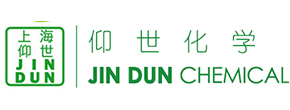115
Citric Acid Anhydrous: Properties, Uses, and Benefits
2023/5/17
Citric acid anhydrous is a form of citric acid, a weak organic acid that is naturally found in citrus fruits, such as lemons, limes, oranges, and grapefruits. Citric acid anhydrous is obtained by removing the water molecules from citric acid crystals, resulting in a white, odorless, and granular powder. Citric acid anhydrous has the chemical formula C6H8O7 and the IUPAC name 2-hydroxypropane-1,2,3-tricarboxylic acid.
Citric acid anhydrous has many properties and uses in various industries, such as food, cosmetic, pharmaceutical, and chemical. Some of the main properties and uses of citric acid anhydrous are:
Acidulant: Citric acid anhydrous is used as an acidulant or acidity regulator in foods and beverages to provide a sour or tart taste, to enhance flavor and aroma, to prevent oxidation and browning, to control pH and microbial growth, and to improve shelf life. Citric acid anhydrous is commonly found in soft drinks, candies, jams, jellies, sauces, pickles, canned fruits and vegetables, dairy products, baked goods, and wine.
Chelating agent: Citric acid anhydrous is used as a chelating agent or sequestering agent in various applications to bind or complex with metal ions and prevent them from interfering with the quality or performance of the product. For example, citric acid anhydrous can be used to remove scale and rust from metal surfaces, to soften water and improve detergent efficiency, to prevent discoloration and rancidity in foods and cosmetics, to enhance the stability and bioavailability of drugs and nutrients, and to reduce metal toxicity in the environment.
Buffer: Citric acid anhydrous is used as a buffer or buffering agent in various applications to maintain a constant pH or resist changes in pH caused by acids or bases. For example, citric acid anhydrous can be used to adjust the pH of solutions and formulations, to stabilize enzymes and proteins, to improve the solubility and dissolution of drugs and nutrients, and to regulate the acidity of biological fluids and tissues.
Antioxidant: Citric acid anhydrous is used as an antioxidant or anti-oxidizing agent in various applications to protect the product from oxidative damage caused by free radicals or oxygen. For example, citric acid anhydrous can be used to prevent the oxidation of fats and oils in foods and cosmetics, to inhibit the corrosion of metals and alloys, to scavenge reactive oxygen species (ROS) in biological systems, and to enhance the antioxidant activity of other substances.
Preservative: Citric acid anhydrous is used as a preservative or antimicrobial agent in various applications to extend the shelf life and safety of the product by preventing or reducing the growth of microorganisms such as bacteria, fungi, yeasts, molds, and viruses. For example, citric acid anhydrous can be used to preserve foods and beverages from spoilage and contamination, to disinfect surfaces and equipment from infection and biofilm formation, to sterilize medical devices and pharmaceutical products from microbial contamination, and to inhibit the growth of pathogens in biological systems.
Citric acid anhydrous has many properties and uses in various industries, such as food, cosmetic, pharmaceutical, and chemical. Some of the main properties and uses of citric acid anhydrous are:
Acidulant: Citric acid anhydrous is used as an acidulant or acidity regulator in foods and beverages to provide a sour or tart taste, to enhance flavor and aroma, to prevent oxidation and browning, to control pH and microbial growth, and to improve shelf life. Citric acid anhydrous is commonly found in soft drinks, candies, jams, jellies, sauces, pickles, canned fruits and vegetables, dairy products, baked goods, and wine.
Chelating agent: Citric acid anhydrous is used as a chelating agent or sequestering agent in various applications to bind or complex with metal ions and prevent them from interfering with the quality or performance of the product. For example, citric acid anhydrous can be used to remove scale and rust from metal surfaces, to soften water and improve detergent efficiency, to prevent discoloration and rancidity in foods and cosmetics, to enhance the stability and bioavailability of drugs and nutrients, and to reduce metal toxicity in the environment.
Buffer: Citric acid anhydrous is used as a buffer or buffering agent in various applications to maintain a constant pH or resist changes in pH caused by acids or bases. For example, citric acid anhydrous can be used to adjust the pH of solutions and formulations, to stabilize enzymes and proteins, to improve the solubility and dissolution of drugs and nutrients, and to regulate the acidity of biological fluids and tissues.
Antioxidant: Citric acid anhydrous is used as an antioxidant or anti-oxidizing agent in various applications to protect the product from oxidative damage caused by free radicals or oxygen. For example, citric acid anhydrous can be used to prevent the oxidation of fats and oils in foods and cosmetics, to inhibit the corrosion of metals and alloys, to scavenge reactive oxygen species (ROS) in biological systems, and to enhance the antioxidant activity of other substances.
Preservative: Citric acid anhydrous is used as a preservative or antimicrobial agent in various applications to extend the shelf life and safety of the product by preventing or reducing the growth of microorganisms such as bacteria, fungi, yeasts, molds, and viruses. For example, citric acid anhydrous can be used to preserve foods and beverages from spoilage and contamination, to disinfect surfaces and equipment from infection and biofilm formation, to sterilize medical devices and pharmaceutical products from microbial contamination, and to inhibit the growth of pathogens in biological systems.
Citric acid anhydrous is a versatile and useful substance that has many properties and uses in various industries. It is safe and effective when used in appropriate amounts and under proper conditions. It can be obtained from natural sources or synthesized from chemical precursors. It can also be mixed with other substances to create new compounds or formulations.

